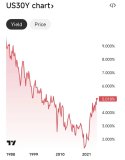China’s Xiaomi commits $6.9 billion to in-house chips
- Xiaomi is set to unveil on Thursday the Xring O1 processor designed for its flagship smartphones.
- Qualcomm CEO Cristiano Amon told CNBC that the company will continue to supply Xiaomi with chips.
- Xiaomi will invest at least 50 billion yuan ($6.9 billion) over the next 10 years to develop its own chips, the company’s CEO Lei Jun said
Chinese technology giant Xiaomi
will invest at least 50 billion yuan ($6.9 billion) over the next 10 years to develop its own chips, CEO Lei Jun said in a Weibo post on Monday.
It’s the latest move by a Chinese firm to double down on home-grown technology amid the ongoing trade war between the U.S. and China that has seen Washington cut off access to some semicondcutors for companies in the world’s second-largest economy.
The 50 billion yuan investment starts from 2025, a Xiaomi spokesperson confirmed. Lei added the company is looking to make a splash at an event on Thursday, when it takes the wraps off the Xring O1 — a so-called system-on-chip that will power Xiaomi’s upcoming smartphone.
The Xring O1 is based on a 3 nanometer manufacturing process, one of the most advanced on the market. For comparison, Apple’s A18 Pro chips inside the iPhone 16 Pro and Pro Max smartphones are built on the same process.
A system-on-chip, or SoC, is a type of semiconductor that contains different components that help run a device, such as a smartphone. This could include parts such as memory and a wireless connectivity.
Until now, U.S. firm Qualcomm has been the main supplier of SoCs for Xiaomi’s flagship smartphones through its Snapdragon-branded semiconductors.
On Thursday, Xiaomi is expected to launch a new smartphone and tablet, as well as electric car. It’s unclear what devices will contain the new Xring O1.
Qualcomm CEO Cristiano Amon told CNBC on Monday that Xiaomi’s latest step is not expected to impact his business.
“We remain a strategic supplier of chips for Xiaomi, and most important, I think Qualcomm Snapdragon chips are used in the Xiaomi flagships and will continue to be used in the Xiaomi flagships,” Amon told CNBC.
Very few smartphone companies globally design their own SoCs, given the expense and difficulty of the process. Apple, Samsung and Huawei are among the few players that have launched their own chips. Many other vendors rely on products from companies like Qualcomm and MediaTek.
But a big advantage to self-designed chips is the ability to more closely integrate hardware and software to offer a differentiated experience from competitors.
The Xring O1 is not Xiaomi’s first SoC, having released the Surge S1 in 2017. Lei said that, due to various reasons and setbacks, the research and development of SoCs was suspended. Xiaomi has launched other types of semiconductors such as those for better management or imaging, but the Xring O1 would mark the company’s return to a fundamental smartphone component.


